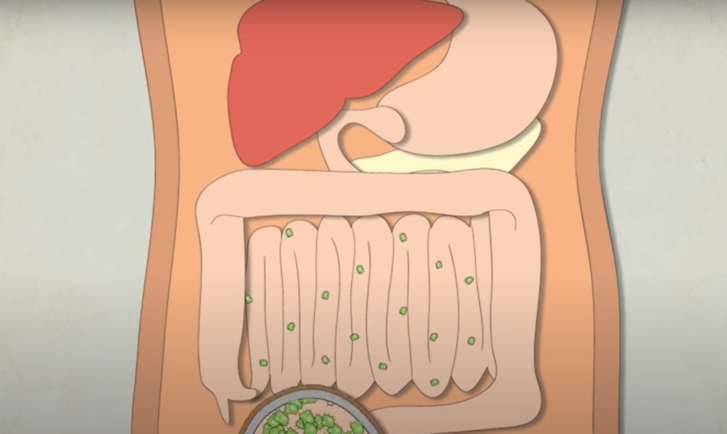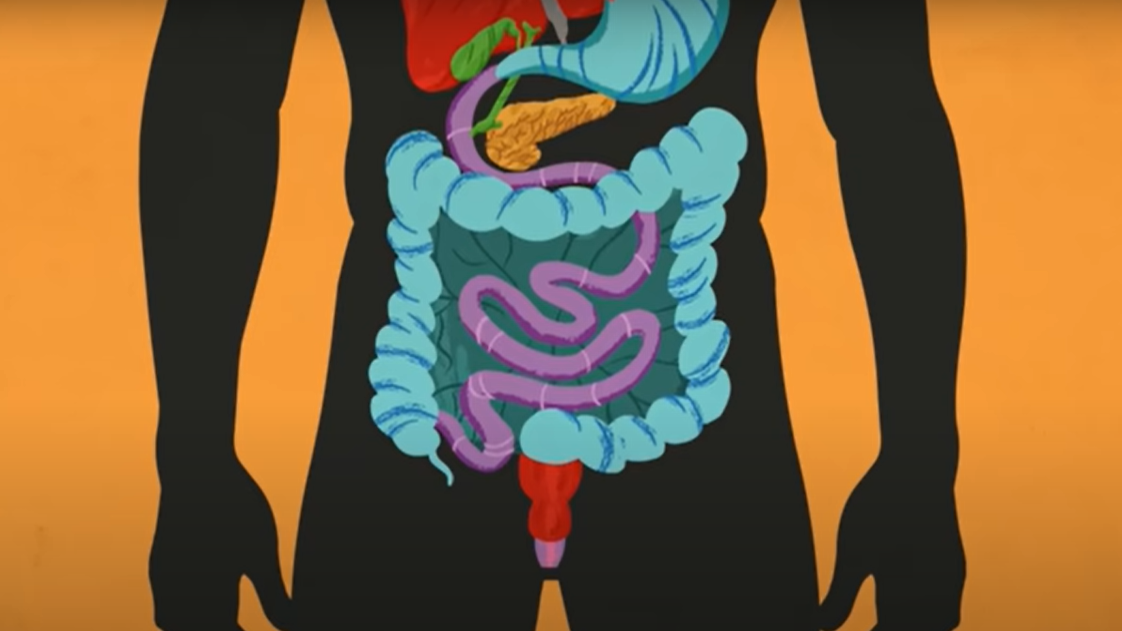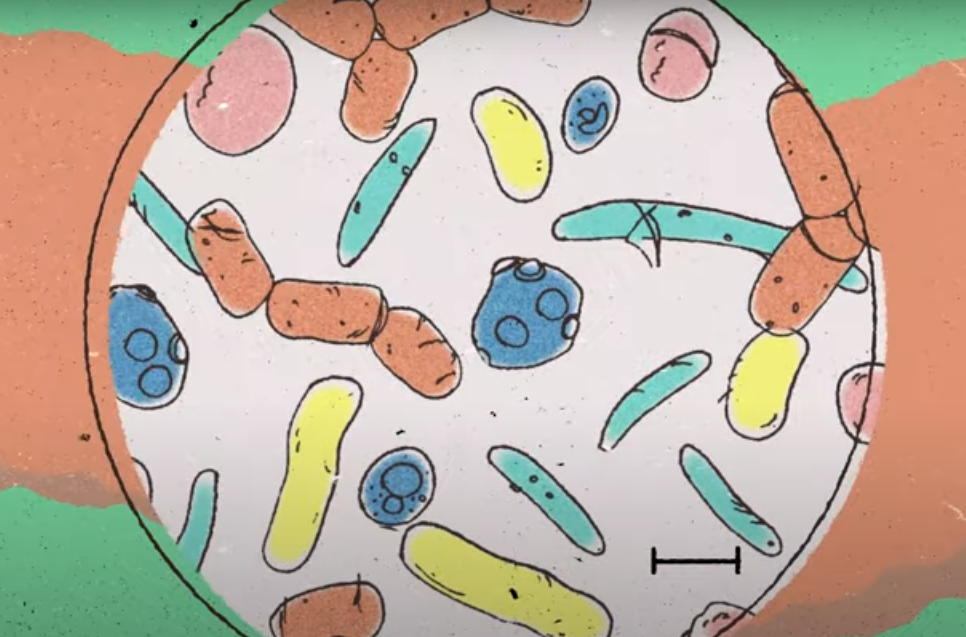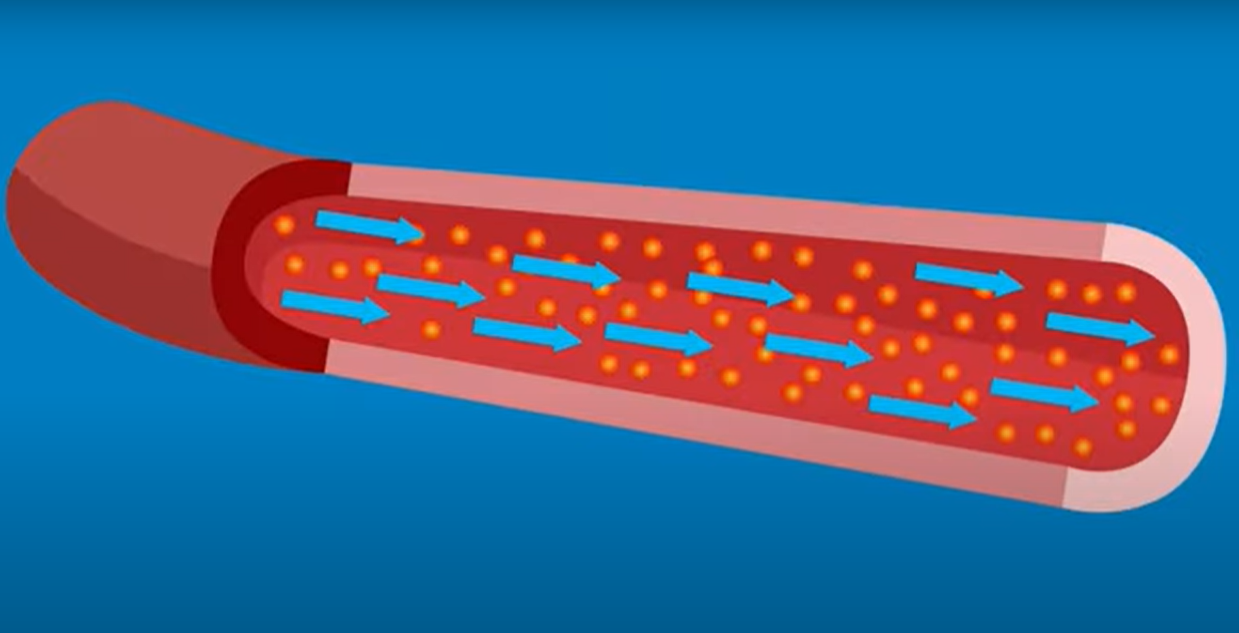As someone who spent years in nutritional science and gut health, I’ve been studying the complex ways in which probiotics interact with our bodies. Probiotics, the beneficial bacteria that support a healthy gut microbiome, offer a multitude of potential health benefits.
One of the common questions I encounter is how to tell if these probiotics are genuinely making a difference. It’s a valid concern, given that the effects of probiotics can be subtle and vary from person to person.
Today, I want to share with you seven key signs that indicate your probiotic supplement or food is having the desired effect. Through my extensive research and clinical experience, I’ve identified these signs as reliable indicators of probiotic efficacy.
1. Digestive Symptoms Improve
When probiotics start working, one of the first and most noticeable changes you can observe is in your digestive health. This improvement is a key indicator that the probiotics are effectively interacting with your gut microbiome, including conditions like leaky gut.
From my professional experience and numerous patient testimonials, here’s a deeper look into how this change manifests:
Reduction in Common Digestive Symptoms
Symptoms like gas, bloating, diarrhea, and constipation, which are often discomforting and even debilitating, can significantly reduced with the regular intake of probiotics. This reduction is a strong signal that your digestive system is responding positively to the good bacteria.
Strengthening of the Gut Barrier
A balanced gut microbiome, achieved through consistent probiotic use, plays a crucial role in strengthening the gut barrier function. This improvement is vital as it helps to prevent harmful substances from leaking into the body, which can trigger inflammation and other health issues. If you are interested in UTIs, adding d-mannose can be of help.
Anti-Inflammatory Effects
Probiotics are known for their ability to reduce gut inflammation. This is particularly important for individuals suffering from chronic digestive conditions like Irritable Bowel Syndrome (IBS) or Inflammatory Bowel Disease (IBD).
Improved Bowel Regularity
High-quality probiotic supplements have been shown to lead to more regular bowel movements. This regularity is not just about frequency; it’s also about the ease and completeness of bowel movements, contributing to a more comfortable digestive experience.
Reduced Bloating and Gas
Many people suffer from bloating and gas due to poor diet, stress, or imbalances in gut bacteria. Probiotics can help alleviate these symptoms by restoring the balance of good bacteria in the gut.
2. Less Illness and Infection
Having a strong immune system is essential for overall good health, and one of the most significant benefits of a healthy gut microbiome is its major role in boosting immune function.
Probiotics, especially those containing live cultures, are key players in fortifying the body’s natural defenses against a range of illnesses and infections.
These live cultures in probiotics are active, beneficial bacteria that work tirelessly to suppress the growth of harmful pathogens.
By doing so, they help maintain a well-balanced gut microbiome, which is not only imperative for optimal digestive health but also vital for the effective functioning of the immune system.
This equilibrium, supported by the presence of live probiotic cultures, is a fundamental aspect of sustaining both gut and immune health.
3. Mood Improves
The intricate relationship between the gut and the brain, often referred to as the gut-brain axis, is a critical component of our overall health and well-being.
I’ve been fascinated by how the state of our gut microbiome can have a profound effect on our mental health. Probiotics, by balancing the gut microbiome, can play a significant role in modulating mood and emotional well-being.
The beneficial bacteria in probiotics are not just passive residents of our gut; they actively communicate with the brain through a variety of pathways, including the vagus nerve and the immune system.
This communication can influence brain function and, consequently, our mood and mental state. When probiotics are effective, they can potentially ease symptoms associated with anxiety, depression, and other mental health disorders.
This is particularly noteworthy given the rising prevalence of these conditions in today’s fast-paced and stress-filled world. Here are some of the ways you might notice an improvement in mood due to effective probiotic use:
- Reduced Anxiety and Depression Symptoms: Many people report feeling calmer and less anxious when their gut microbiome is in balance.
- Enhanced Mental Clarity and Focus: A balanced gut can lead to clearer thinking and improved concentration.
- Overall Sense of Well-Being: Beyond specific mental health symptoms, an effective probiotic regimen can contribute to a general sense of well-being.
- Improved Sleep Quality: The gut-brain connection also extends to our sleep patterns.
4. Skin Clears Up
The health of our skin is often a mirror of the internal state of our body, particularly the health of our gut. In my experience as a healthcare professional with a focus on nutrition and dermatology, I’ve seen remarkable connections between gut health and skin conditions.
Probiotics play a significant role in this relationship. By establishing the right probiotic regimen, individuals often notice improvements in various skin issues, including acne, eczema, and rashes.
This improvement is not just a coincidence but a direct result of the intricate interplay between the gut microbiome and skin health.
A balanced gut microbiome achieved through probiotics contributes to reducing systemic inflammation, a key factor in many skin conditions.
Inflammation in the body can manifest on the skin in various forms, and by managing this inflammation internally, probiotics can have a noticeable impact on skin health. Here are some ways you can see the improvement:
- Reduction in Acne: For those struggling with acne, probiotics can help by rebalancing the gut microbiome, thereby reducing inflammation and potentially decreasing the severity of breakouts.
- Easing Eczema Symptoms: Eczema, often linked to an overactive immune response, can be alleviated through probiotics, as they help modulate the immune system and reduce skin inflammation.
- Alleviating Skin Rashes: Probiotics can help in soothing various types of skin rashes, often caused by imbalances in the gut microbiome or systemic inflammation.
5. Losing Weight
The role of gut bacteria is increasingly coming to the forefront. As a professional in nutritional science, I’ve observed firsthand how the composition and health of the gut microbiome are intimately connected to an individual’s metabolism and their ability to manage weight.
Probiotics, by influencing this gut microbiome, can play a pivotal role in weight management strategies. The beneficial bacteria in probiotics contribute to weight loss and management in several key ways.
Firstly, they can have a regulatory effect on appetite hormones. By balancing these hormones, probiotics can help to reduce cravings and unnecessary eating, leading to a more controlled and mindful eating pattern.
This change can be subtle but profound in its impact on daily calorie intake and overall dietary habits. Probiotics have been found to impact the way our bodies store fat.
By altering the gut flora, these good bacteria can influence the body’s metabolism, leading to more efficient fat-burning and less fat storage. Different types of yogurt can be quite useful in enhancing the gut flora.
This process is a crucial aspect of weight management, especially in a world where processed foods and sedentary lifestyles are prevalent. A good choice would be to opt for pickles.
6. Cholesterol Drop
The link between gut health and cardiovascular health is a topic of increasing interest and research in the medical community. A balanced gut microbiome, which can be significantly influenced by probiotics, has a noteworthy impact on cholesterol levels.
In my work focusing on nutritional interventions for heart health, I’ve seen how probiotics can play a vital role in managing and improving cholesterol profiles.
Probiotics contribute to the reduction of LDL (low-density lipoprotein) cholesterol, often referred to as “bad cholesterol,” and total cholesterol levels in the body.
This occurs through various mechanisms. Certain strains of good bacteria in probiotics can break down bile in the gut, preventing it from being reabsorbed in the intestines where it can enter the blood as cholesterol.
These beneficial bacteria can influence the metabolism of dietary fats, reducing the amount of cholesterol absorbed into the bloodstream.
A drop in cholesterol levels due to probiotic use is not just a benefit for your gut health. It’s a major positive indicator for your cardiovascular health.
High levels of LDL cholesterol are a known risk factor for heart disease, including heart attacks and strokes. Therefore, managing these levels is crucial for long-term heart health. CFUs in probiotics can help with this aspect.
FAQs
What stops probiotics from working?
Several factors can hinder the effectiveness of probiotics, including taking antibiotics, which can kill both good and bad bacteria. A poor diet, high in sugar and processed foods, can also negatively affect probiotic function.
How long before probiotics heal your gut?
The time it takes for probiotics to heal the gut varies among individuals. Generally, some improvement may be noticed within a few days to a week, but significant healing and rebalancing of the gut microbiome can take several weeks to months.
How long does it take for probiotics to balance your gut?
Balancing the gut microbiome with probiotics typically requires a few weeks to a couple of months. This timeline can depend on various factors, including the specific probiotic strains, the dosage, the individual’s existing gut health, diet, and lifestyle.
Do probiotics flush out bad bacteria?
Probiotics don’t exactly “flush out” bad bacteria, but they help in maintaining a healthy balance of gut microbiota.
They compete with harmful bacteria for space and nutrients in the gut, produce substances that inhibit the growth of pathogenic bacteria, and stimulate the immune system to respond appropriately to harmful microbes.
Closing Thoughts
If you experience any of these signs, your probiotic is likely providing benefits.
- It’s important to remember that it can take 6-8 weeks to see results from probiotic use, and this varies based on factors like probiotic type and dosage.
- Give it more time to work if you haven’t noticed improvements yet.
Remember, the effectiveness of probiotics can vary depending on individual health conditions and the quality of the product. Probiotics are living microorganisms linked to various health benefits, but they may not work the same way for everyone.
Related Posts:
- What Does A PCOS Belly Look Like - How to Recognize…
- What To Look For In Collagen Powder? Experts Reveal
- Can Anxiety Have Fatal Consequences? An In-Depth Look
- 10 Shocking Signs You're Feeling Broken – #7 Will…
- Psychological Facts About Soulmates You Might Not…
- 10 Signs Someone is Constantly Thinking About You:…



















